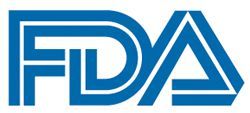FDA Grants Fast Track Status to 7HP349 for PD-1–Resistant Metastatic Melanoma
The FDA has granted a fast track designation to the novel immunostimulant 7HP349 for use in combination with a CTLA-4 inhibitor in patients with unresectable or metastatic malignant melanoma in whom a PD-L1 inhibitor has failed.
US FDA

The FDA has granted a fast track designation to the novel immunostimulant 7HP349 for use in combination with a CTLA-4 inhibitor in patients with unresectable or metastatic malignant melanoma in whom a PD-L1 inhibitor has failed.1
The agent is an allosteric activator of the integrins VLA-4 and LFA-1, which play a key role in the production of an effective antigen-specific immune response. Specifically, these integrins can impact lymphocyte recruitment, extravascular trafficking, T-cell activation, and effector functions. 7HP349 was designed to be leveraged in combination with an immunotherapy to improve the effectiveness of immune checkpoint inhibitors and infectious disease vaccines.
“[The] FDA’s decision to grant 7HP349 fast track designation underscores the critical unmet medical need still present in PD-1–resistant melanoma,” William Schary, PhD, vice president of clinical and regulatory affairs at 7 Hills Pharma LLC, stated in a press release. “We are working to bring oncologists a completely new therapeutic modality to overcome immune checkpoint inhibitor resistance. Achieving fast track designation for our lead clinical molecule represents a meaningful step toward our goal of delivering the full promise of immunotherapy.”
The 7HP compounds developed by the clinical-stage drug development company are designed to target validated cell adhesion pathways that are needed to home T cells to specific tissues.2 According to the company, these compounds are the only known activators of the cell adhesion axes VLA-4/VCAM-1 and LFA-1/CAM-1. By activating these pathways, they seek to bolster the trafficking of endogenous effector lymphocytes or adoptively transferred effectors into solid tumors.
Preclinical data have illustrated that these compounds can result in a 100-fold increase in the adhesion of activated T cells to simulated tumor endothelium, and that they can also improve the penetration of activated T cells into simulated tumor stroma.
Previously, the safety, tolerability, and pharmacokinetics (PK) of 7HP349 were evaluated in 60 healthy males as part the first-in-human, phase 1 trial (NCT04508179).3 The trial enrolled those between the ages of 18 years and 45 years, who had normal clinical chemistry, hepatic function, hematology, and thyroid function.
To be eligible for enrollment, individuals also needed to have a body mass index ranging from 19 kg/m2 to 30 kg/m2 and not less than 60 kg, a positive immune status, and they need to agree to refrain from consuming any products that contained grapefruit, pomelo, star fruit, or Seville oranges for at least 1 week prior to the first dose of the study drug.
If patients were found to have a clinically significant history of disorders, infections, or drug hypersensitivity per investigator assessment; a history of malignancy, except for cured basal cell or squamous cell carcinoma of the skin; are positive for human immunodeficiency virus, hepatitis B, or hepatitis C; or they were receiving treatment or had received treatment with another investigational agent within 30 days of drug initiation, they were excluded.
The study was conducted in 3 parts. Part A was the placebo-controlled, within-cohort randomized, double-blind, sequential, single ascending dose-escalation portion of the research. In these 5 cohorts, investigators set out to evaluate the safety, tolerability, and PK of the agent after single oral doses were administered. This portion of the research also sought to identify the optimal PK dose (OPD).
Part B was also placebo-controlled, had within-cohort randomization, was double-blinded, and evaluated sequential, multiple ascending dose-escalation with the goal of learning more about the safety, tolerability, and PK of the agent after up to 5 once-daily doses were received in 2 cohorts. Part C served as the randomized, open-label, 2-treatment, 3-period, crossover study that would examine the effect of the fed or fasting prandial state of the single-dose PK of the agent.
The primary outcome measure of the trial was establishing the safety and tolerability of 7HP349 in healthy male participants, and key secondary outcome measures included evaluating the PK of the agent by looking at maximum plasma concentration, plasma exposure, exposure in urine, and renal clearance, to establish the OPD.
7 Hills Pharma LLC announced in November 2021 that the trial had been completed, and that no treatment-related toxicities were observed through parts B and C of the trial, where exposures had exceeded 9 times therapeutic levels.4
In a press release, Lionel Lewis, MBBCh, MD, chief medical officer of the company, shared that the phase 2 dose and schedule with the agent that is projected to augment an antigen-specific cellular and humoral response had been identified.
“We are proud that 7HP349 has been recognized by the FDA as a potential solution to substantively improve upon current state-of-the-art cancer immunotherapy,” Joseph Bailes, MD, co-founder and board member of 7 Hills Pharma, added in the press release. “We are excited to have the opportunity to accelerate our developmental plans through enhanced flexibility and communication with FDA.”
The company shared plans to evaluate the agent in PD-1–refractory solid tumors and to augment prophylactic influenza vaccination in elderly individuals, as part of phase 1b/2a trials.
References
- 7 Hills Pharma’s clinical-stage novel immunostimulant 7HP349 granted FDA fast track designation for anti-PD-1-resistant metastatic melanoma. News release. 7 Hills Pharma LLC; March 8, 2022. Accessed March 17, 2022. https://bit.ly/36tA6jW
- Technology: 7 Hills is developing novel immuno-modulatory agents to increase the effectiveness of emerging immune-oncology drugs and infectious disease vaccines. 7 Hills Pharma LLC website. Accessed March 17, 2022. https://bit.ly/3ihCIUN
- A phase 1 SAD and MAD study of the safety, tolerability and PK of 7HP349 in normal healthy male subjects. ClinicalTrials.gov. Updated November 2, 2021. Accessed March 17, 2022. https://clinicaltrials.gov/ct2/show/NCT04508179
- 7 Hills Pharma announces the completion of a landmark phase I trial of immunostimulant to improve immuno-oncology drugs, COVID-19 and influenza vaccines. News release. 7 Hills Pharma LLC; November 1, 2021. Accessed March 17, 2022. https://bit.ly/3CPt3OG



